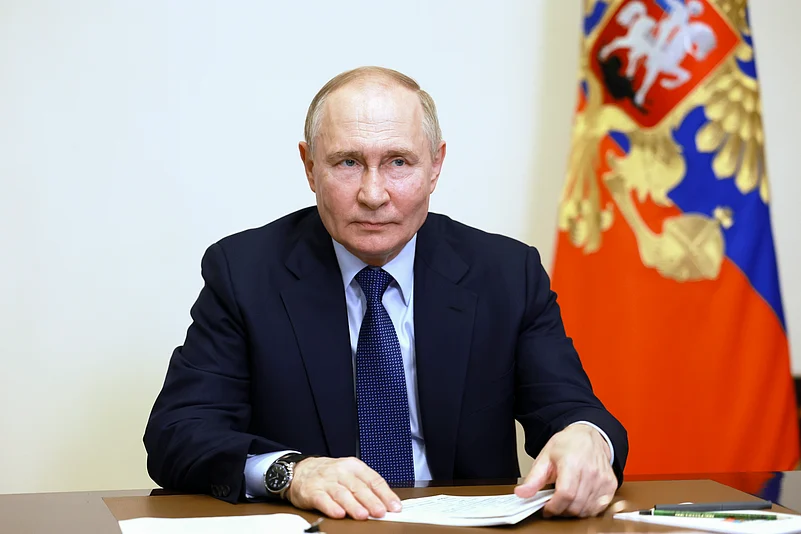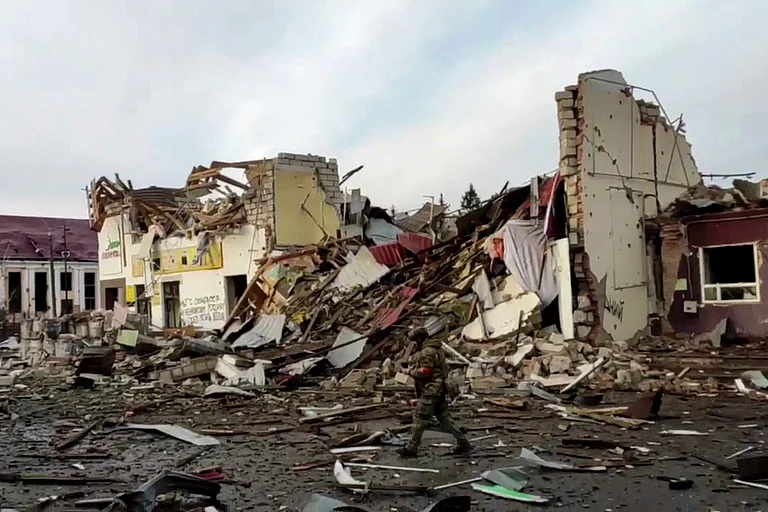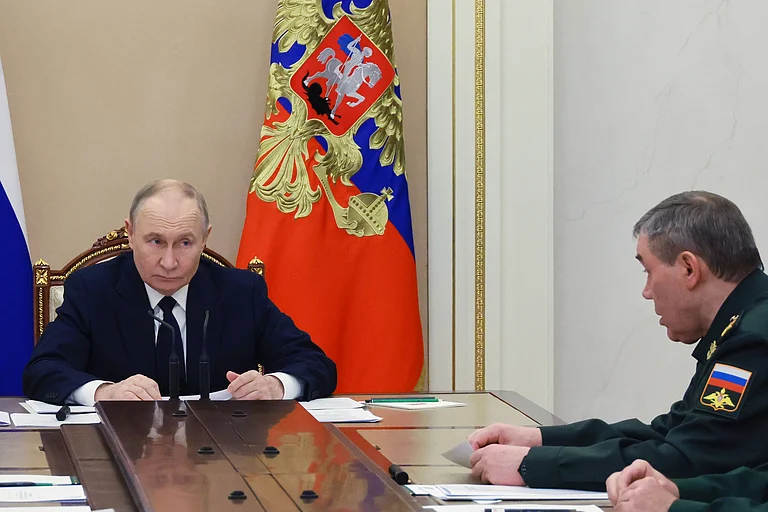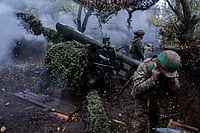Russian President Vladimir Putin on Friday called for resumption of the production of intermediate-range missiles that were banned under a now-scrapped treaty with the United States.
The Intermediate-Range Nuclear Forces (INF) treaty was considered as an arms control landmark when it was signed between Soviet leader Mikhail Gorbachev and US President Ronald Reagan in 1988.
The treaty banned the ground-based nuclear and conventional missiles with a range of 500 to 5,500 kilometres (310-3,410 miles).
Notably, the United States dropped out from the treaty in 2019, citing Russian violations as the reason behind its decision. However, Kremlin has repeatedly denied and dismissed the allegation.
“We need to start production of these strike systems and then, based on the actual situation, make decisions about where - if necessary to ensure our safety - to place them,” Putin said during a meeting of Russia's national security council.
The Russian President said that the country hadn't produced such missiles since the scrapping of the treaty in 2019, saying that but "today it is known that the US not only produces these missiles systems, but has already brought them to Europe for exercises, to Denmark". "Quite recently it was announced that they are in the Philippines," he added.
"We need to respond to this and make decisions about what we will have to do in this direction next," Putin said.
The end of the intermediate-range nuclear forces treaty was a milestone in the deterioration of the relations between the United States and Russia.
By far the two biggest nuclear powers, Russia and the US, have both expressed their regret about the disintegration of the tangle of arms control treaties, which sought to bring down the pace of the Cold War arms race and reduce the risk of nuclear war.
In 2018, the then US President Donald Trump had said that he wanted terminate the INF treaty because of years of Russian violations and his concerns about China's arsenal of intermediate-range missile.
The United States, in fact, publicly blamed Russia's development of the ground-launched cruise missile -- 9M729 -- known in the NATO as the SSC-8, for the reason behind its withdrawal from the INF treaty, Reuters reported.
The last remaining arms-control pact between the two is the New Strategic Arms Reduction Treaty, which limits each country to no more than 1,550 deployed nuclear warheads and 700 deployed missiles and bombers.
This treaty will expire in 2026, and the lack of dialogue on anchoring a renewal deal has worried the arms control advocates.
Notably, earlier this month, Putin had said that he could deploy conventional missiles within striking distance of the United States and its European allies if they allowed Ukraine to strike deeper into Russia with long-range Western weapons.
Putin has so far given no indication of where the missiles could be deployed.
(With inputs from agencies)



























